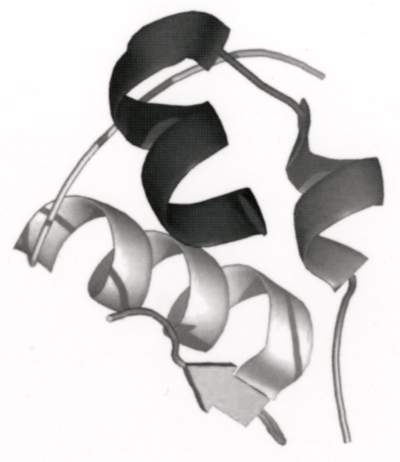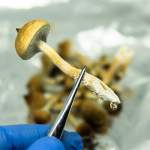Institute researchers have developed the first successful vaccine that halts the progression of Type 1 diabetes. The vaccine, which functions by blocking the destruction of insulin-secreting pancreatic cells, both prevents the onset of Type 1 diabetes and blocks its progression in patients whose cells have already begun to die.
Type 1 diabetes (also known as insulin-dependent or juvenile diabetes) usually results from an autoimmune disorder in which the immune system mistakenly attacks the body’s own insulin-producing pancreatic cells, reducing and ultimately eliminating all insulin production. Affecting roughly 5% of all diabetes sufferers, Type 1 diabetes commonly begins during childhood or adolescence and leads to a total dependence on insulin supplementation. Nevertheless, insulin treatment is not a cure - it merely offers a replacement, helping to control blood sugar levels. A cure would stop the autoimmune destructive response, sparing the insulin-producing beta cells.
The new vaccine currently in development, known as DiaPep277, has been shown to prevent the destruction of pancreatic cells through a unique process in which the immune system is “educated” to stop its destructive attack. The treatment, developed by a team led by Prof. Irun Cohen of the Immunology Department, is based on Cohen’s earlier discovery that a key protein in pancreatic cells, known as HSP60, can act as an antigen, prompting the immune system’s T lymphocyte cells to attack. Further investigation by Cohen and his group has revealed that injecting diabetic mice with a small peptide fragment of the HSP60 protein shuts down this immune response, preventing the progression of Type 1 diabetes.
Moving on to clinical trials, Cohen, in collaboration with researchers at Hadassah-Hebrew University Medical School and the Israeli biopharmaceutical company Peptor Ltd, found that three injections of the vaccine over the course of six months successfully blocked the progression of Type l diabetes in newly diagnosed patients without causing significant side effects. The researchers were able to trace the drug’s effect to changes in the patients’ T cells. Due to the success of initial trials, Aventis, one of the world’s leading pharmaceutical companies, has recently purchased the exclusive right from Peptor Ltd. To develop, register and commercialise the DiaPep277 vaccine.
Developing a diagnostic kit
In a related development, Prof. Cohen has developed an approach that may make it possible to detect Type 1 diabetes early enough to salvage large numbers of insulin-producing cells. A major problem with Type 1 diabetes is that the autoimmune process that destroys the insulin-producing beta cells produces no symptoms. As a result, the disease is generally diagnosed only when the insulin shortage becomes apparent, by which time most beta cells have been irreversibly damaged.
In this approach, detection will be based on testing blood or urine samples for the presence of beta-cell debris released into the body fluids when these cells are mistakenly destroyed by the immune system. The method has been licensed for commercial development to Peptor Ltd.
Other scientists participating in the DiaPep277 study are: Professor Itamar Raz and Dr. Muriel Metzger of Hadassah-Hebrew University Medical School; and Dr. Dana Elias (now VP R&D at Peptor Ltd.), Dr. Ann Avron and Dr. Merana Tamir of Peptor Ltd.






















